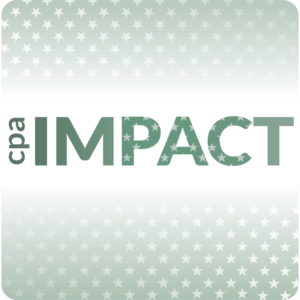 On Monday night, the House and Senate adopted a mammoth 5,593-page appropriations bill that contains significant victories for the accounting profession and the clients we represent. NCACPA joined with AICPA and other state CPA societies to advocate for several key provisions, outlined below.
On Monday night, the House and Senate adopted a mammoth 5,593-page appropriations bill that contains significant victories for the accounting profession and the clients we represent. NCACPA joined with AICPA and other state CPA societies to advocate for several key provisions, outlined below.
The House voted 359-53 to pass the bill, with Representatives Bishop and Budd being the only members of the North Carolina delegation voting against (Representatives Murphy and Walker were absent from the vote). Senators Burr and Tillis voted with the majority when the Senate passed it 92-6.
PPP Deductibility
Business expenses funded by forgiven Paycheck Protection Program (PPP) loans will be tax deductible. Sec. 276 of the bill clarifies that deductions are allowed for otherwise deductible expenses paid with the proceeds of a PPP loan that is forgiven, and that the tax basis and other attributes of the borrower’s assets will not be reduced as a result of the loan forgiveness. Second Draw PPP loans will receive similar treatment.
The provision upends IRS Notice 2020-32 and Rev. Rul. 2020-27, which declared such deductions would be disallowed. CARES Act sponsors were quick to state that it was the intent of Congress for PPP-funded expenses to be deductible, even though it was not explicitly stated in the Act.
Adoption of this provision is an enormous win for NCACPA members and the clients they represent. More than 640 NCACPA members responded to our Call for Action to contact their members of Congress. Equally impressive is that 400+ non-members used our public-facing Call for Action page.
Second Draw of PPP Loans
The bill appropriates funds for a second tranche of PPP loans for small businesses that are still struggling through the pandemic. The loan maximum for eligible entities will be $2 million. Previous PPP loan recipients with fewer than 300 employees may apply for another loan if they exhausted or will exhaust the full amount of their first draw and can demonstrate a decline in revenue of 25% or more in any quarter of 2020 compared to the same quarter from 2019.
The universe of entities with access to PPP loans is broadened to included 501(c)(6) organizations, subject to certain limitations (fewer than 300 employees, less than $1 million spent on lobbying, and lobbying cannot make up more than 15% of the organization’s activities or receipts).
The bill also makes additional expenses eligible for forgiveness, including personal protective equipment; certain supplier costs; costs related to property damage not covered by insurance and caused by public disturbances that occurred in 2020; and expenditures for software, cloud computing, and other human resources and accounting needs.
Simplified Forgiveness of PPP Loans
Borrowers with PPP loans of $150,000 or less will benefit from simplified procedures when applying for loan forgiveness. Borrowers will receive forgiveness if they send the lender a one-page certification that includes the number of employees retained because of the loan, the total spent on payroll expenses, and the total loan amount. PPP recipients will also no longer have to deduct the amount of Economic Injury Disaster Loan funds received from their PPP forgiveness amount.
Other Items
You can read more about the extensive list of additional tax provisions in this summary.
What’s Next?
President Trump is expected to sign the bill into law soon. The bill requires that regulations to carry out the Act be issued no later than 10 days after enactment, although the SBA will have 24 days to create the simplified loan forgiveness application form.
If you have questions about this or other policy issues, please contact NCACPA Director of Advocacy Robert Broome at [email protected].
